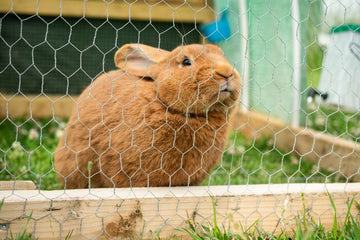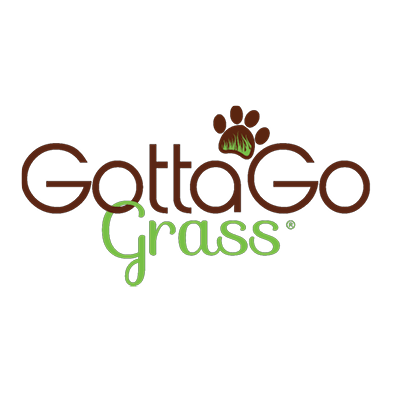
Owning a rabbit offers many joyful moments, from watching their curious hops to setting up their cage. But, if you're a rabbit owner, you've probably had one of those face-palm moments when your rabbit chews on something random like a cardboard box instead of the perfectly good chew toy next to it. This typical behavior raises an important question: is cardboard safe for rabbits?
With over 2.2 million pet rabbits in the US, many are curious about this question. While this behavior is common, eating cardboard isn’t ideal and should be discouraged.
Key Takeaways
- While small amounts of cardboard may not immediately harm your rabbit, it can pose health risks if eaten in large quantities, leading to potential digestive blockages. It’s best to discourage your rabbit from eating cardboard altogether.
- Provide rabbit-safe options like grass hay, untreated wooden toys, bamboo sticks, and pinecones. These materials promote healthy chewing habits and prevent digestive issues caused by ingesting non-food items like cardboard.
- Gotta Go Grass® offers a natural and eco-friendly surface for rabbits to use for bathroom breaks. Its grass pads for small animals are a safer, more enriching alternative to traditional litter boxes, helping you create a rabbit-friendly environment.
Why Do Rabbits Chew on Cardboard?
Rabbits are now the most popular small animal pets, with 6.7 million households owning small animals. Rabbits are charming pets that are particularly popular with Millennials and Gen Z, but their chewing habits can be perplexing.
Rabbits are natural chewers because their teeth never stop growing. To keep their teeth at a healthy length and prevent dental issues, they need to chew constantly. While eating hay is the best way for rabbits to maintain their dental health, some may turn to non-safe items like cardboard when other materials aren’t available.
However, cardboard is not meant to be a part of a rabbit’s diet. Even though it might not be toxic in small amounts, regular consumption can pose health risks.

Why Rabbits Should Not Be Allowed to Eat Cardboard
Rabbits should not be allowed to eat cardboard intentionally. While it may seem harmless, eating it in large quantities can lead to serious health issues for your rabbit. The main concern is gastrointestinal blockages, which can be life-threatening. Symptoms of a blockage include lack of appetite, lethargy, or unusual droppings. If you notice your rabbit eating cardboard excessively, remove it immediately and consult your veterinarian if you suspect any digestive issues.
Instead of giving cardboard, offer your rabbit safer chewing options that are enriching and beneficial to their health. Encourage them to focus on chewing hay, leafy greens, high-quality pellets, and rabbit-safe toys. If you have to use cardboard for enrichment, such as creating DIY toys or tunnels, it’s essential to take precautions to discourage your rabbit from eating it.
- Use it for play, not for eating: Use cardboard tubes (like those from toilet paper rolls) filled with hay or treats as toys.
- Avoid hazardous types of cardboard: Do not use cardboard with tape, glue, staples, or a glossy coating. These can contain harmful chemicals and pose a choking hazard.

Rabbit-Safe Alternatives to Cardboard
To discourage your rabbit from eating cardboard, provide safe and appropriate alternatives that satisfy their need to chew:
- Grass Hay: Unlimited access to grass hay is essential for maintaining dental and digestive health. Hay is the best way for rabbits to wear down their teeth and support proper digestion.
- Wooden Toys: Use untreated wooden toys made specifically for small animals. Avoid giving your rabbit random wood items that may be treated with harmful chemicals.
- Bamboo: Bamboo sticks are durable and safe for rabbits to chew on.
- Pinecones: Dried, untreated pine cones are another natural option for your rabbit to nibble on.
All these materials are safer alternatives that provide enrichment without the risk of digestive issues associated with eating cardboard. But remember, while these materials are safer than eating cardboard, it’s still important to monitor how your rabbit engages with them. Except for grass hay, most of these materials should not be consumed in large quantities. If you notice your rabbit trying to eat wooden toys or other non-food items excessively, remove them immediately.

Creating a Rabbit-Safe Environment with Gotta Go Grass® Pads
In addition to providing safe chew materials, products like Gotta Go Grass® pads for small pets can help create a more enriching environment for your rabbit. These natural grass pads offer a safer, eco-friendly surface for your rabbit to use for bathroom breaks, reducing the need for traditional litter boxes. The familiar texture of grass is appealing to rabbits and provides a healthier option for their habitat.
Providing a mix of safe rabbit toys, chew toys, and enriching spaces can keep your bunny active and happy while protecting them from harmful behaviors like eating cardboard.
Final Thoughts
While small amounts of cardboard may not significantly harm your rabbit, it’s best to discourage them from eating it altogether. Chewing cardboard can quickly turn into ingestion, leading to digestive issues. Offer safe, rabbit-friendly alternatives like grass hay and wooden toys to keep your bunny’s teeth healthy and prevent them from resorting to risky items.
Visit the Gotta Go Grass website to explore a wide range of pet-safe products, including grass potty pads for dogs, to create a safer, more enriching environment for your furry friends.




